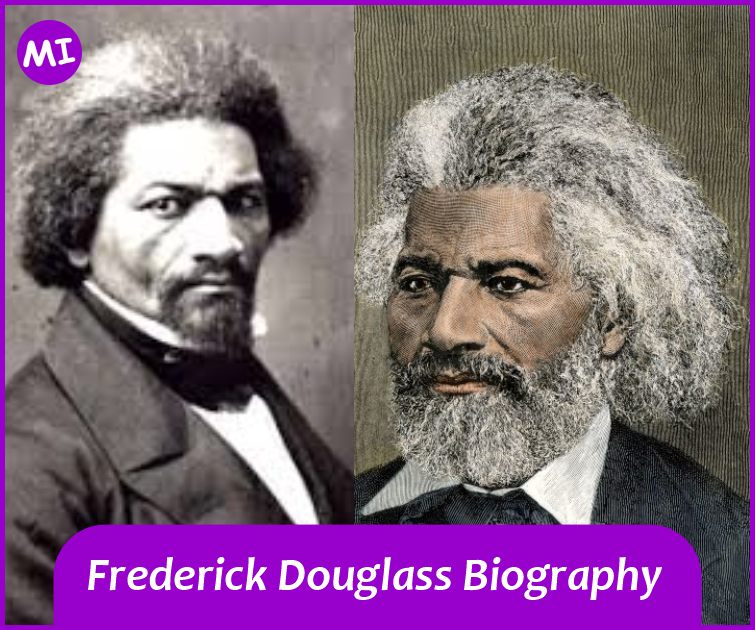
Frederick Douglass Biography – Explore the inspiring life of an abolitionist icon, detailing his net worth, early struggles, education, quotes, and career achievements that shaped history.
Frederick Douglass stands as one of the most influential figures in American history, a man whose life story embodies resilience, intellect, and an unwavering commitment to justice. Born into slavery, Douglass transformed his hardships into a powerful narrative that fueled the abolitionist movement.
This Frederick Douglass biography dives into every facet of his remarkable journey, his net worth, age at key milestones, unforgettable quotes, early life struggles, self-taught education, documented legacy on Wikipedia, groundbreaking accomplishments, family background, eventual death, career achievements, and well-deserved awards.
Whether you’re a history enthusiast or simply curious about this iconic figure, this comprehensive guide offers a detailed look at Douglass’s enduring impact.
Frederick Douglass Biography
Frederick Douglass’s biography is a testament to the power of perseverance. From his birth in 1818 to his death in 1895, Douglass lived a life marked by extraordinary transformation—from an enslaved child to a globally recognized orator, writer, and advocate for equality. His journey not only reshaped his own destiny but also influenced the course of civil rights in America.
In this article, we’ll uncover the layers of his life, exploring how his experiences shaped his legacy and why his story remains relevant today.
| Field | Details |
|---|---|
| Full Name | Frederick Douglass (born Frederick Augustus Washington Bailey) |
| Date of Birth | February 1818 |
| Place of Birth | Talbot County, Maryland, U.S. |
| Date of Death | February 20, 1895 |
| Place of Death | Washington, D.C., U.S. |
| Nationality | American |
| Profession | Abolitionist, Orator, Writer, Statesman |
| Education | Self-educated |
| Notable Works | Narrative of the Life of Frederick Douglass, an American Slave (1845) |
| Major Achievements | – Escaped from slavery in 1838 – Became a leading voice in the abolitionist movement – Advised President Abraham Lincoln – First African American nominated for Vice President (1872) |
| Organizations | American Anti-Slavery Society, Republican Party |
| Spouse(s) | Anna Murray Douglass (m. 1838–1882)Helen Pitts Douglass (m. 1884–1895) |
| Legacy | Considered one of the most influential African American figures in U.S. history and a pioneer for civil rights and equality |
Key Takeaways
- Douglass overcame slavery to become a leading intellectual and activist.
- His self-education and writings remain foundational to understanding American history.
- His legacy spans abolition, literature, and civil rights advocacy.
Early Life: The Foundations of Frederick Douglass’s Journey
Frederick Douglass was born in February 1818 in Talbot County, Maryland, though the exact date remains uncertain—a common reality for enslaved individuals denied birth records. His mother, Harriet Bailey, was an enslaved woman, while his father was likely a white man, possibly his enslaver, though Douglass never confirmed his identity.
Separated from his mother as an infant, Douglass was raised by his grandmother until age six, when he was sent to work on the Wye House plantation.
Life as an enslaved child was brutal. Douglass witnessed violence, hunger, and dehumanization, experiences that ignited his lifelong fight against injustice. At age 10, he was sent to Baltimore to serve Hugh and Sophia Auld. This move proved pivotal—Sophia began teaching him the alphabet, sparking a hunger for knowledge that slavery couldn’t extinguish.
Education: A Self-Made Scholar
Douglass’s education was a triumph of will. When Hugh Auld forbade his wife from teaching Douglass, citing that literacy would make him “unfit” for slavery, Douglass took matters into his own hands. He secretly traded bread with poor white children for reading lessons and studied discarded newspapers. By his teens, he was reading complex texts and teaching other enslaved people in secret Sabbath schools.
This self-taught education fueled his escape from slavery in 1838, when he fled to New York disguised as a sailor. Literacy became his weapon—later wielded through his eloquent speeches and writings, including his first autobiography, Narrative of the Life of Frederick Douglass, an American Slave.
Career Achievements: From Fugitive to Icon
Abolitionist Orator and Writer
After escaping slavery, Douglass joined the abolitionist movement, captivating audiences with his firsthand accounts. His 1845 autobiography became a bestseller, cementing his status as a leading voice against slavery. He published two more memoirs—My Bondage and My Freedom (1855) and Life and Times of Frederick Douglass (1881)—each expanding on his journey and philosophy.
Publisher and Editor
In 1847, Douglass founded The North Star, an abolitionist newspaper, with the motto “Right is of no Sex—Truth is of no Color.” The paper ran for over a decade, amplifying Black voices and advocating for freedom and equality.
Political Influence
Douglass advised presidents, including Abraham Lincoln, on emancipation policies. During the Civil War, he recruited Black soldiers for the Union Army, believing military service would secure citizenship rights. His advocacy extended to women’s suffrage, notably at the 1848 Seneca Falls Convention.
Net Worth: A Modest Fortune Built on Principle
Estimating Frederick Douglass’s net worth is challenging due to limited financial records, but his earnings stemmed from book sales, speaking fees, and government roles, including his appointment as U.S. Marshal for the District of Columbia in 1877. For an ex-slave in the 19th century, his wealth was modest yet remarkable—likely in the tens of thousands of dollars by his death. More significant was his investment in ideas, prioritizing justice over material gain.
Quotes: Words That Echo Through Time
Douglass’s quotes remain timeless, reflecting his wisdom and resolve. Here are some standouts:
- “If there is no struggle, there is no progress.”
- “I would unite with anybody to do right and with nobody to do wrong.”
- “The soul that is within me no man can degrade.”
These words, drawn from his speeches and writings, continue to inspire activists and thinkers worldwide.
Accomplishments: A Legacy of Change
Douglass’s accomplishments are vast. He authored three autobiographies that reshaped public perceptions of slavery. He influenced the abolition of slavery through relentless advocacy and played a key role in advancing civil rights. His international lectures in Britain and Ireland garnered global support for the American abolitionist cause. Posthumously, his home in Washington, D.C., became a National Historic Site.
Parents and Family Life
Douglass’s mother, Harriet Bailey, died when he was young, leaving him with little memory of her. His father’s identity remains speculative, a painful ambiguity reflecting slavery’s disruption of family ties. Douglass later married Anna Murray, a free Black woman who aided his escape, and they had five children. After Anna’s death in 1882, he married Helen Pitts, a white suffragist, defying racial norms.
Death: The End of an Era
Frederick Douglass died on February 20, 1895, at age 77, after collapsing from a heart attack or stroke following a women’s rights meeting. His death marked the loss of a titan, but his ideas lived on, honored through memorials and continued reverence.
Awards and Recognition
While Douglass received few formal awards during his lifetime, his posthumous honors are numerous. He’s commemorated with statues in Washington, D.C., and Rochester, New York, a U.S. postage stamp in 1965, and his Cedar Hill home designated as a historic site. His intellectual contributions earned him a lasting place in history books and on Wikipedia as a symbol of freedom.
Conclusion
Frederick Douglass’s biography is more than a recounting of dates and events—it’s a blueprint for courage and transformation. From his enslaved beginnings to his rise as an abolitionist giant, Douglass’s life reflects the power of education, resilience, and moral clarity. His net worth may have been modest, but his wealth of influence is immeasurable, leaving a legacy that continues to shape discussions on equality and justice.
FAQs About Frederick Douglass
- What was Frederick Douglass’s most famous quote?
One of his most famous quotes is, “If there is no struggle, there is no progress,” encapsulating his belief in the necessity of effort for change.
2. How did Frederick Douglass learn to read and write?
Douglass was initially taught the alphabet by Sophia Auld, then self-educated by trading food for lessons and studying independently.
3. What were Frederick Douglass’s major accomplishments?
He wrote bestselling autobiographies, founded The North Star, advised presidents, and championed abolition and women’s rights.
4. When and how did Frederick Douglass die?
Douglass died on February 20, 1895, at age 77, likely from a heart attack or stroke after attending a women’s rights event.
5. What is Frederick Douglass’s net worth estimated to be?
While exact figures are unclear, his net worth was modest, derived from writing, speaking, and government roles, significant for his era.




